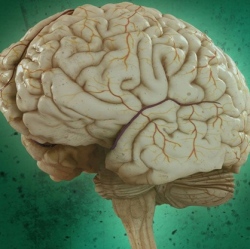
Princeton University researchers have found that making an erroneous decision is caused by errors, or “noise,” in the information coming into your brain, rather than errors in how your brain accumulates or processes that information.
The researchers separated sensory inputs from the internal mental process. ”To our great surprise, the internal mental process was perfectly noiseless. All of the imperfections came from noise in the sensory processes,” said senior investigator Carlos Brody, a Princeton associate professor of molecular biology and the Princeton Neuroscience Institute (PNI), and a Howard Hughes Medical Institute Investigator.
The research subjects — four college-age volunteers and 19 laboratory rats — listened to streams of randomly timed clicks coming into both the left ear and the right ear. After listening to a stream, the subjects had to choose the side from which more clicks originated. (The rats had been trained to turn their noses in the direction from which more clicks originated.)
The test subjects mostly chose the correct side but occasionally made errors. By comparing various patterns of clicks with the volunteers’ responses, researchers found that all of the errors arose when two clicks overlapped, and not from any observable noise in the brain system that tallied the clicks. This was true in experiment after experiment, utilizing different click patterns, in humans and rats.
The researchers used the timing of the clicks and the decision-making behavior of the test subjects to create computer models, used to indicate what happens in the brain during decision-making. The models provide a clear window into the brain during the “mulling over” period of decision-making, the time when a person is accumulating information but has yet to choose, Brody said.
